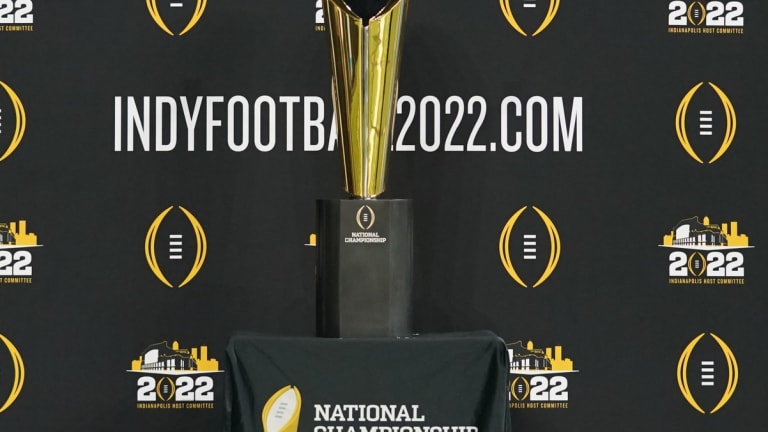
A Jersey Guy: Tsunami warning for CFB and CBB
Right now it is tranquility base time in college basketball,
The aftermath of a fabulous Final Four and NCAA tournament are still being felt, as well as the by-products of the bluest of blue blood Final Fours, which produced an epic title game with Kansas edging out North Carolina.
But we live in cyber-speed world, where the course of history can change with a tweet and yesterday's news is archived quickly.
Still lingering over college basketball is the fate of a Kansas basketball program which the NCAA and FBI have been investigating for the past three years for major violations.
If the school involved was Kansas State instead of Kansas, the outcome would be part of a sports brief round up.
But it isn't.
Now the power brokers in the sport, as well as Kansas, must squirm as they wait to see if a newly crowned champion is hit with sanctions, which seems likely to be the case, although the severity of those sanctions remains a topic of debate.
But there are other, much larger issues involving college basketball and college football such as a transfer portal system which has run amuck in both sports, creating chaos.
Name, Imaging and licensing is the other hot button issue which has shaken the system which now allows players to make whatever they can from the use of their name, image or license.
In the past, the member schools--and that is really the NCAA's source of strength as well as revenue--would let the NCAA deal with those issues, with proper howls of protest when they went against the financial plan for those schools.
But according to multiple sources, as well as the NCAA leadership, those days will soon be part of the past.
It couldn't be any clearer.
The NCAA is getting out of the enforcement and governing business.
Oh, the NCAA will be more than happy to run the business of conducting championships in numerous sports, which is a major project.
But in the key billion dollar issues which has made college basketball and football in the same category as professional sports, the NCAA has had enough and is doing its best to tell its members to be prepared to take over-sooner rather than later.
This is what NCAA President Mark Emmert said at his annual state of the NCAA press conference at the Final Four in Indianapolis last month.
""You know, who is in charge is the same group that has always been in charge,'' said Emmert. "And that's that the schools.
There's an enormous amount of misunderstanding about what the NCAA is. People speak of the NCAA as if it's some monolithic entity. As you know, it's not. Its 1,100 schools that come together and make decisions in a collaborative representative democracy.
Those schools always have been in charge and those schools will be charge moving forward. And they collectively, with the help of the national office, have to make decisions in this new legal context.''
The key phrase is "with help from the national office''. There is wide debate over how much help will be in the future.
The message that Emmert has steadily sent to the membership in issues such as the transfer portal, the NIL and enforcement is tat the national office has little interest in governing those areas of collegiate sports.
Let the Power 5 conferences dictate what is legal, and what rules should be put in place or even enforced.
And that folks is the issue which the leaders of college football and basketball must put as a primary agenda.
But it may be a Catch-22 situation.
The leaders in both sports can't agree on ANYTHING of consequence
Look at the chaos in college football over a plan which of expanding the CFP playoffs from its current four team system
The consensus of expanding it to 12 teams is the best plan, but that has been on the table for almost a year and has created a log jam because they want a UNINAMOUS agreement.
Good luck with that.
Conference expansion has been jammed up because no agreement on exit or rights fees has been reached, with world filtering out that there might not be any final movement until the end of the 2024
season.
That's lunacy at its highest level and benefits no one.
American Athletic Conference commissioner Mike Aresco, who is losing teams to the Big 12, but also expanding as well, offers one note of hope.
"I'm cautiously optimistic that we can work somethings out in the next month, which would allow us to move forward,'' said Aresco on Monday. "But I can't speak for what the Big 12 (which is poised to take Houston).''
As for the issue about the schools take more responsibility for enforcement, transfer and other revenue generating issues, Aresco had no master plan.
"That's an issue we haven't dealt with yet, but it seems clear we will ''have to find some solution.''